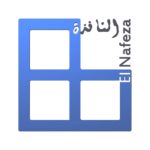An Egyptian foundation working in the fields of art and development, legally registered in 2007 though it has been informally working since 2002. Its Papermaking Centre is located in El Fustat district, in Masr El Qadima (Old Egypt).
In Development: El Nafeza organizes workshops for youth, especially girls, in papermaking from the agricultural refuse, and establishes specialized training centres to teach and spread the arts and techniques of the recycled papers made from papers and agricultural refuse – especially rice straws, Nile water lilies and bananas stalks.
In Art: El Nafeza organizes local and international exhibitions and workshops in the field of the artist and art book, as its founder, Dr. Mohamed Abou El Naga, is the innovator and founder of Imagining the Book Biennale, held in Alexandria and supervised by him in 2002 and 2005. El Nafeza also provides database and news for artists and people interested in the field of artist and art book through El Nafeza's website.
El Nafeza Foundation for Contemporary Art & Development
El Nafeza is Aan Egyptian foundation working in the fields of art and development. Legally registered in 2007 though it has been informally working since 2002. Its Papermaking Centre is located in El Fustat district, in Masr El Qadima (Old Egypt). El Nafeza's main fields of interest are development through art and contemporary art, with a focus on the art book.
In Development: El Nafeza organizes workshops for youth, especially girls, in papermaking from the agricultural refuse, and established specialized training centres to teach and spread the arts and techniques of recycled paper made from agricultural refuse – especially rice straws, Nile water lilies and bananas stalks.
In Art: El Nafeza organizes local and international exhibitions and workshops in the field of the artist and art book, as its founder, Dr. Mohamed Abou El Naga, is the innovator and founder of Imagining the Book Biennale, held in Alexandria and supervised by him in 2002 and 2005. El Nafeza also provides database and news for artists and people interested in the field of artist and art book through El Nafeza's website.
El Nafeza produces and designs different handmade paper products (such as presents boxes, books covers, lighting units, etc), which are shown in different exhibitions and are displayed and sold different places in and outside Egypt, including the Townhouse Gallery in Downtown Cairo, the Catacomb in Maadi, Diwan bookstore and the Fair trade shop in Zamalek, El Khaton in Al-Azhar district, Bibliotheca Alexandrina and Phardise in Alexandria and Alanda Gallery in Jordan. El Nafeza continuously innovates new ways of using handmade papers, notably in purposes of interior design to attract new customers and open new markets locally and worldwide.
It cooperates with other civil society organizations (CSOs) interested in projects of increasing income, especially for marginalized categories and people with special needs, as a way of reaching the impoverished rural societies that need a new craft to help eliminate poverty and improve the living conditions.
El Nafeza seeks to revive and spread the papermaking industry, contributing to the protection of environment through disposal of agricultural refuse, such as rice straws, Nile water lilies and paper refuse – in an environmentally friendly way. It tries to provide an untraditional source of income for many of the people of the countryside and poor areas, by teaching them the art of papermaking, especially girls, and also people with special needs, such as the deaf and mute.
In the space between art and development, El Nafeza supports many experiments and workshops run by artists with papermakers at the centre, exchanging artistic experiences and techniques in mutual creation, as most of the book arts are based on handmade books and papers made by the centre.
The artist's special experience, therefore, is supported and new horizons are opened for imagination and creation, by means of the projects that support the exchange of experiences and techniques, and cultural exchange, opening communication channels and dialogue through art as a human expression.
Some of El Nafeza's Achievements In the Art Field: It had started before the formal registration, through its founder, in artistic projects he innovated and founded, including
-Biennale of Imagining the Book, Bibliotheca Alexandria in 2002 and 2005
-Form through the Light – in cooperation with the Plastic Arts Sector. It is a meeting between artists inspired only by the 'light', on the occasion of the month of Ramadan. It was held in the Arts Palace in the Opera House in 2005 and 2006.
-In and on Papers, a group exhibition held in 2006 in Ibdaa (Creativity) Gallery in Muhandessin, and in Portray Gallery in Downtown in 2007
-Al Hakibah (The Baggage), an international meeting gathering 20 plastic artists and 20 writers who created and expressed the concept of the baggage, held in April 2007 in the Atelier of Alexandria. It had a printed catalogue combining texts and artistic pictures.
In the Development Field:
-More than 40 youths (young men and women) were trained in the centre on the papermaking arts and various designs of paper products, almost half of them from the deaf and the mute.
Workshops
-UNICEF (2 workshops for street children) in 2007 & 2008
-Artellewa Institution, a workshop for children living in Ard El Lewa area, in October 2007
-A workshop in the presence of artist Hazem El Mestikawy and Swiss artist Barbara Graf, April 2007
-Islamic Aid Egypt (Centre of Early Interference for Mentally Handicapped Children) January 2008
-Paper arts workshop using three dimensions (3D) technique, artist Dr. Medhat Nasr, May 2007
-Workshop in the presence of artist Kioko Iba, November 2007 by support of the Japanese Institution in Cairo
-El Nafeza in December 2007 had established a papermaking unit making papers from the Nile water lilies in Esna Secondary School for Girls, in Upper Egypt
Although the ancient craft of papermaking from natural plants and fibers dates back to Pharaonic times, this craft has been neglected and relegated to the low-quality production of papyrus paper for the commercial tourist industry.
El Nafeza Foundation for Cultural Development with its wealth of experience in papermaking from around the world, is setting up a learning centre that will both revive this craft as well as contribute to the solution of an environmental problem. Agricultural refuse and natural by-products of local crops, such as rice straw, banana stalks and Nile water lilies, are among the many materials out of which paper will be produced. Although these materials constitute a significant burden on the environment, they can be used to produce diverse and attractive types of recycled paper. The production of recycled paper introduces an innovative, efficient and effective way of addressing an environmental problem that state institutions have been unsuccessful in addressing. For lack of better solution, rice straw, for example, is burned, resulting in the formation of the ‘black cloud’ that resides over Egypt, presenting a respiratory hazard during the harvest season every year. Through this newly established center supported by Alfanar 2005/2008 & EFG-Hermes 2007/2008 El Nafeza will set up learning programs in which young men and women will learn the craft of using agricultural refuse for the production of paper. Once they complete the program the second phase of the project will begin, where they will be encouraged and assisted in setting up their own papermaking workshops, hence opening up income generating opportunities for themselves. Paper produced can be used for a myriad of art and creative design purposes, besides attractive greeting cards, calendars and book art. The center will also identify a few marketable products that can be produced and sold in order to generate revenue to cover part of the center’s operating costs, thus enabling them to train more people.
During this past year, Mohamed Abou El Naga, an award wining Egyptian artist, has started his project of paper making, creating job opportunities for youth through empowering them with the skills and tools required to produce creative good quality hand-made paper.
Abou El Naga is working individually as an artist together with a team of committed people in order to realize the aim of the project: to establish a recycling and design workshop where alternative functional and creative uses of agricultural refuse are generated by the trained youth (girls and boys) thus addressing the soaring unemployment rate. Abou El Naga’s idea was to name the project “El Nafeza” or the window to mean creating opportunity, generate hope and a gateway to arts and culture.
Mohamed's work has great economic potential for Egypt. Handmade paper has become one of the major rural village industries in India, generating employment and requiring little capital in rural villages. The last decade witnessed rapid growth in export as a number of handmade paper and paper products manufacturing units have become one hundred percent export-oriented units and contributed to increasing the foreign exchange of the country.
Mohamed is linking the idea of income generation with environmental protection. New jobs will be generated that are dependent on the use of agricultural refuse, with its long-term positive effect on the environment. Farming communities will learn to make paper from available resources, thus creating jobs, generating income, and promoting awareness about the importance of preserving the environment
Finding out about the environment's productive and income-generating uses, farming communities will have an interest in preserving their environment. Mohamed is targeting mainly farming communities and schools in these areas
and sees drop-out, unskilled, and unemployed women and men as untapped assets that can be empowered with the skills to make paper out of agricultural refuse, thus providing them with jobs that will allow them to bring income to their families and positively contribute to the development of their communities. Since women represent a significantly greater percentage of those unemployed in rural areas, Mohamed believes that they can be catalysts in transforming farming communities all over Egypt.
Currently the project is in its third phase, meaning a number of young men and women (15 all in all: 12 girls and 3 men) has had the experience, knowledge and expertise of hand-made paper production, and have produced an assortment of good quality papers (greeting cards, attractive writing papers, etc). Some of those papers have been sold and marketed in well renown stores.
The project has proved successful, so far, and has answered to its planned contribution in addressing the challenges related to the long lost Artisanship, Unemployment, and Environment pollution. Meanwhile, the project seeks to promote its current production innovatively and produce new designs that could be produced and used in a myriad of art and creative design purposes (interior decoration designs of lamp shades, and other). He wants to seize the opportunity offered by the growing market for handmade-paper products abroad, and to gain an international reputation for handmade paper, like it's age-old reputation for papyrus-making.
In addition, Abou El Naga’s plan is to further strengthen the knowledge and skills of those young men and women as well as others in the year to come and assist them to develop their own workshops eventually. That will hopefully multiply in the future through his assistance to establish similar projects in the different governorates through the local community organizations. Mohamed's center’s idea is the first such initiative in the Arab world and could be an inspiration for similar collaborations between artists and community development workers.
The project seeks consultative advise and support from the Development Support Center in many aspects. Those include: editing of proposals, assisting in fundraising, technical advice, strengthening the skills of support staff, and most importantly thinking, planning and foreseeing the project’s role.





